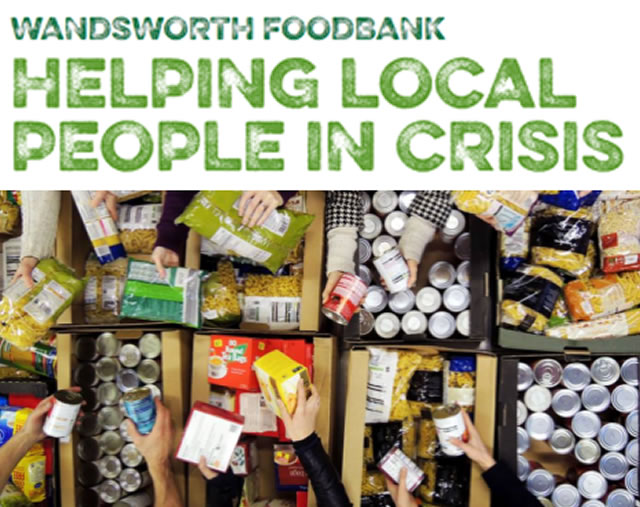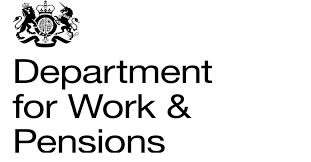1000 Children Received Food From Wandsworth Foodbank
5218 three-day emergency food supplies to local people referred in crisis during 2017-18

One thousand children from across Wandsworth Borough were referred with their families in crisis to Wandsworth Foodbank during April 2017-March 2018, new research released today reveals. The figures show that 77% of emergency food went to children of primary school age children or younger – highlighting that younger children are at particular risk of poverty and food insecurity
Nearly one in three Wandsworth children are living in poverty. In two wards, nearly half of children live in poverty. [i] The Equality and Human Rights Commission says recent changes to taxes and social security will result in 1.5 million more children in poverty in the UK by 2022, and that the child poverty rate for those in lone parent households will increase from 37% to over 62%.[ii]
One parent, Affia (name has been changed), says:
“I’ve got a job now so what I was on before, Income Support, they’ve stopped it. But it’s been two weeks and I haven’t got Working Tax Credit yet either. The lady on the phone said she doesn’t know when she can activate it; it could take up to weeks, months.
I’m working as a receptionist but it’s only part-time so it’s not that much money. I was supposed to get paid this week but my details aren’t through yet on the pay list, so the manager said I won’t be getting paid this month. I was like, really?
They stopped my housing benefit too, so I hope I don't get into rent arrears. The council said I've got to re-apply with my wage slip, but I haven't got my wage slip! It's like a catch-22 – it's crazy. I knew about the Discretionary Social Fund but because I'm not on Income Support any more, they can't help me. They just gave me the foodbank voucher.
The one thing I do get is my Child Benefit, but that’s only twenty pounds, so it’s a bit hard. Once my wages and Working Tax Credit are in place, I’m able to stretch the money and juggle things and get through, but on twenty pounds I’m struggling. I’m trying to make sure my daughter is covered – she’s got to have her milk, her nappies. I can knock on my neighbour for toast for me. I’m worrying about my gas and electric because I don’t want that to cut out.
What’s ironic is that I done all my shopping three weeks ago, and in Sainsbury’s there was a foodbank trolley and so I put some food in there. I was just doing that for everyone else, and now I’m here myself. You never know you’re the one that’s going to need help.”
Sarah Chapman, founder of Wandsworth Foodbank and research author, says:
“We all want to live in a society that has justice and compassion at its core – one where one where no child faces hunger. But too many families across Wandsworth are trapped in a daily struggle to put food on the table, with parents skipping meals so their children can eat, and children going to school hungry.
Poverty negatively impacts children’s health, housing, education, future work prospects and life expectancy, and puts at risk children’s basic human right to have the food they need. It comes at great personal cost, and great cost to society.
We are so pleased to be able to help all the families who are referred to us, but it’s not right that people in our communities are trapped in poverty and hunger. We know that work which pays a decent, living wage and a social security system that adequately protects us in time of trouble is what is really needed across Wandsworth and the UK – and that it’s achievable.
That’s why we’ve produced this report and recommendations, which include asking Wandsworth Council to measure food insecurity in the borough, and to start covering the additional travel costs of homeless households incurred because the Council has moved them to homeless accommodation outside of the Borough – extra travel costs that too often pull families into poverty.”
In total, Wandsworth Foodbank provided 5218 three-day emergency food supplies to local people referred in crisis during 2017-18, an increase of 11% on the previous year.
However there was a sharper increase in foodbank use during December 2017- March 2018 – up 25% on the same period the year before (and compared to a 3% year-on-year increase during April-November). This correlates with Universal Credit full service roll-out across Wandsworth which began on 6 December 2017 – which now includes families and people with mental and physical health difficulties – and Wandsworth Foodbank is concerned this may indicate the start of accelerating hardship and food poverty that other areas of UC roll-out have experienced across London and the UK.

DWP spokesperson said: “The reasons why people use food banks are complex, so it’s wrong to link a rise to any one cause.
“Universal Credit is rolling out successfully across the country and we’ve made a number of improvements; we’ve introduced 100% advances to support people before their first payment, removed the 7 waiting days and implemented 2 weeks’ extra housing support for claimants moving onto Universal Credit.
"We continue to spend around £90 billion a year supporting people who need it, including those who are out of work or on a low income. Work is the best means of providing people with financial security, and with our welfare reforms people are moving into employment faster and staying there longer than under the old system."
April 24th 2018
[i] End Child Poverty, 2018. Households are living in poverty if their household income (adjusted to account for household size,) is less than 60% of the average. All poverty rates are calculated on an after housing costs basis. www.endchildpoverty.org.uk/poverty-in-your-area-2018
[ii] Equality and Human Rights Commission, March 2018. The cumulative impact of tax and welfare reform.
Related links
|